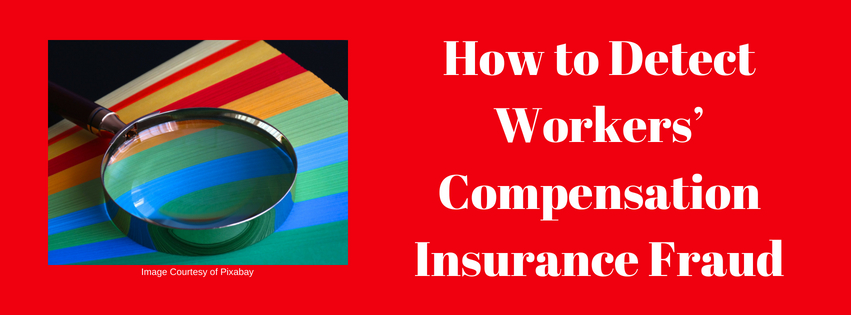While many employers have to deal with the accidental trip, cut, or injury happening to one of their employees at some point throughout the lifespan of their business, no one should have to put up with fraud in the process.
According to a study done by the National Insurance Crime Bureau, workers’ compensation insurance fraud is a casually-committed crime that annually costs businesses over $30 billion nationwide. Perhaps one of the more common forms of this is “claim-related fraud”, which happens when an employee either falsely reports an injury or overexaggerates the extent of an existing one in the effort to receive better workers’ compensation benefits.
Want to avoid being scammed out of a higher insurance payout? If you’ve just received a workers’ comp. claim from your employee – while there’s no one-size-fits-all guideline to know a fraud when you see it – a simple fact-check against these 10 common warning signs can help narrow down your suspicions.
The claim might be a fraud if:
- You receive the report on a Monday morning, even if the injury was said to have happened the Friday before;
- The alleged accident is reported right after or before the employee is fired, given less work, or quit;
- The employee’s lawyers or doctors have a record of dealing with multiple or suspicious claims;
- There are no witnesses to, or an illogical reason was given for the accident;
- The employee’s story regarding the injury does not match with the evidence given by medical records;
- The employee has a reputation for lying or making questionable claims;
- The employee refuses to have a check-up with a medical professional or otherwise verify the extent of the accident;
- There was an unexplained time-gap between the injury and when the report was given;
- The supposedly injured employee is difficult to reach when at home; and
- The employee has a history of frequently changing doctors, jobs, or home addresses.
If two or more of these warning signs are present in the accident claim, while it’s not an exact science, chances are high that the report is fraudulent.
Perhaps one of the simplest fraud prevention steps you can take, however, is to reduce the environmental likelihood of it happening by encouraging safe workspaces, a no-tolerance attitude towards the crime, and an anonymous reporting system for coworkers to speak up about questionable activity if they notice any.
And if you ever do suspect a claim to be false? Alert your workers’ compensation insurance provider immediately, so that the appropriate authorities can launch an investigation.
